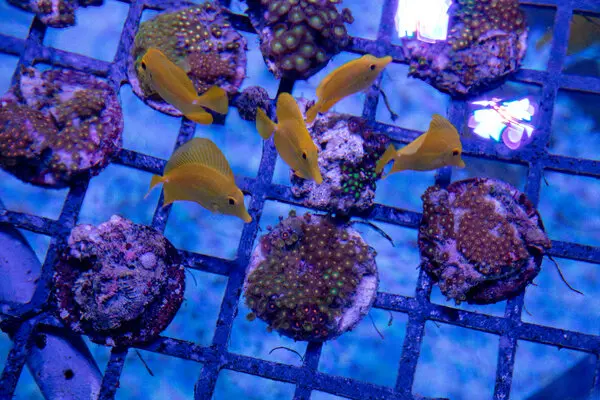By: Yuxi Nan
Coral, a colorful plant-like creature that comes in many shapes and sizes, are being smuggled worldwide, causing the wildlife of tropical reefs to face extinction. These smugglers need to be stopped and recognise their actions.
Coral, however, is not a plant. In fact, they are actually animals. They are tiny invertebrates (animals that don’t have a backbone) that live in big colonies, forming a beautiful foundation in the world’s tropical reefs. Corals play a very important role in the habitats of reefs around the world. They filter the water, providing places to hide for many fish and other ocean life, and even protect coastlines from storms and erosion. But coral is also a very sensitive animal, even with just the wrong temperatures, they will start to feel sick and die. Which makes coral smugglers a very big problem for the tropical oceans and for the world.
Coral smugglers are people who take corals from the wild and sell them to get money. To do this, they would use a chisel and a hammer to get the coral off the rocks of the Caribbean, Australia, or even Indonesia, then put them in small baggies and ship them off into the world. This endangers the marine wildlife in reefs around the world leading to extinction to many species. If the corals arrive safely at their destination, they may be targeted by traffickers who sell them to different aquariums in the area. But if the corals arrive sick or stressed that may be a problem. “When corals are stressed, a lot of times what they will do is create a heavier mucus layer for protection,” said Kim Stone, director of fish and invertebrates at the Georgia Aquarium in Atlanta. “If the water is not clear, you need to move quickly,” She had also said.
To help this problem, the U.S Fish and Wildlife Service Has worked with zoos and aquariums to try and save the coals, and with the help of Wildlife Confiscated Network, they have had much success. “We’ve set up a network of trusted, reputable facilities,” Sara Walker, a senior adviser on wildlife trafficking for the Association of Zoos and Aquariums, said. “And law enforcement can call one person, and that person will do all the legwork, calling around, finding out who’s got the space.”
Wildlife in the ocean is just as important as life on land. We should protect it, and stop stealing wildlife from its home.











